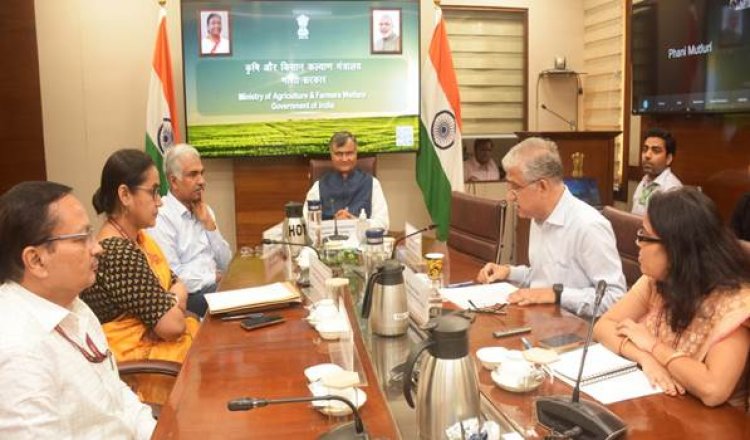The government has launched an unified portal for agri-statistics (UPAg) that will empower stakeholders to access credible and objective data for taking informed decisions. The UPAg, developed by the Ministry of Agriculture, is a crucial component of digital public infrastructure for agriculture.
The portal aims to address the data related governance challenges such as lack of standardised and verified data, which make it difficult for policymakers, researchers, and stakeholders to make informed decisions. After launching the portal, think tank Niti Aayog member Ramesh Chand said it is a ground-breaking move to address the complex governance challenges facing Indian agriculture.
"This innovative platform, designed to streamline and enhance data management in the agricultural domain, marks a significant step towards a more efficient and responsive agricultural policy framework," he said in a statement. He also stated that higher the objectivity of data, lower is the scope of judgment in policy making, which translated into stable, transparent and informed decisions. Stating that the portal should ensure data credibility, Chand said a research suggests that one US dollar invested in data generated USD 32 impact.
Agriculture Secretary Manoj Ahuja said UPAg Portal was being envisaged as a public good wherein users will benefit by reduced search costs and access to credible, granular and objective data. The UPAg portal will have key features such as 'data standardisation', 'data analysis', 'granular production estimates', 'commodity profile reports', and 'plug and play'.
The portal will standardise data on prices, production, area, yield, and trade, making it accessible in one location, eliminating the need to compile data from multiple sources. It will perform advanced analytics, offering insights such as production trends, trade correlations, and consumption patterns, aiding policymakers in making informed decisions.
The portal will generate granular production estimates with increased frequency, enhancing the government's ability to respond to agricultural crises swiftly. It will also produce commodity profile reports using algorithms, minimising subjectivity and providing users with comprehensive insights.

That apart, users will have the flexibility to use the portal's data to prepare their own reports, promoting data-driven decision-making, the statement said. According to the ministry, this initiative aligns with the principles of e-governance, bringing smartness, transparency, and agility to India's agriculture sector.